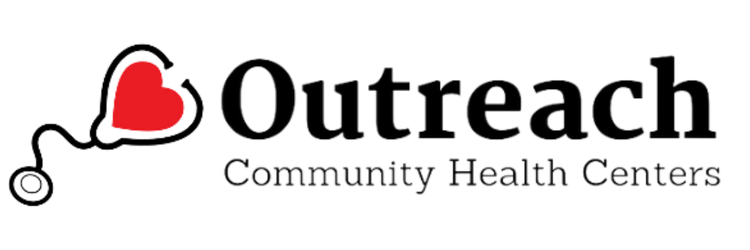Helping Someone you love manage their Hypertension
Most people might not think of blood pressure as a serious health issue, but it is. Hypertension, or high blood pressure, is a risk factor for heart disease and other conditions that can result in death. A person's blood pressure rises with age on average and many people don't even realize they have hypertension because there are often no warning signs or symptoms. The good news is that hypertension is treatable and preventable by making changes to your lifestyle and diet. If you have a loved one who has been diagnosed with hypertension, you might be feeling overwhelmed about how to help them manage their condition. To make sure you're doing everything you can for your loved one's well-being, here's some information about the causes of hypertension, its effects on the body if left untreated, different treatment options available to your loved one and other general tips to improve the quality of life for both of you:
Hypertension Causes
Hypertension is a disease that affects your heart, brain, and kidneys.
It's estimated that 1 in 3 Americans has high blood pressure.
High blood pressure (or hypertension) is a leading cause of heart attack and stroke.
Hypertension Effects
High blood pressure can cause many health problems. It can damage the heart, kidneys, eyes and blood vessels. If not treated, high blood pressure can lead to heart disease, heart attack and stroke. High blood pressure raises your risk of kidney disease, kidney failure and other complications such as aneurysms (an abnormal bulge in an artery). It also increases your risk of eye problems such as glaucoma. High blood pressure may also increase the risk that you will have a stroke or another type of brain attack.
High blood pressure can also cause problems with the nervous system such as headache or cognitive impairment (thinking difficulties).
Hypertension Treatments
If a patient's blood pressure is easily managed with lifestyle modifications, this can be an excellent option. If not, medications are often necessary.
Several types of drugs are used to treat hypertension:
Diuretics (water pills)
Beta-blockers
Calcium channel blockers
These drugs help lower blood pressure by suppressing the effects of certain hormones that cause the body to retain water and salt or relaxes the muscles in your arteries. These effects make it easier for your heart to pump blood through your body without having to work as hard or as fast.
Hypertension Warning Signs
Headaches
Dizziness
Blurred vision
Mental confusion
Chest pain (may be sharp or dull)
Shortness of breath, especially with physical activity or when lying flat in bed at night. You may wake up out of breath at night, causing you to gasp for air. This symptom is called orthopnea. It occurs due to decreased blood flow to the lungs.
Nausea and vomiting that can be brought on by exertion or even just getting up from a chair too quickly. This symptom does not necessarily mean that the person has high blood pressure; it can also indicate other serious illnesses like heart failure and kidney failure. If nausea and vomiting are accompanied by abdominal pain, fever and chills, it could signal an acute abdomen condition such as appendicitis or diverticulitis — especially if there are other symptoms such as diarrhea or bloody stool that accompany these symptoms as well .
Rapid heart rate (usually more than 100 beats per minute). Your loved one's doctor may ask him/her to stay still while they listen with a stethoscope over various parts of his/her body looking for any abnormal noises coming from within during each heartbeat cycle (known medically as murmurs). He/she might also check the pulse rate using his/her fingers placed over various arteries throughout his/her body while counting aloud until he/she reaches 60 beats per minute when finished counting then multiplying this number by 2 so he knows how many beats occurred in total during this period of time—and measuring how far apart they were spaced on average between each beat occurring so we'll know how regular they're beating normally--then comparing those results against what he found earlier today during our last visit here at home."
Hypertension Treatment Options
Medications
Lifestyle changes
Surgery. In some cases, your doctor may consider surgery to treat your high blood pressure if you have severe or uncontrolled hypertension. This is especially true if you have other health problems that could be affected by the medication used for treatment of hypertension. Hypertension surgery involves replacing damaged heart valves with ones made of plastic or tissue from another part of the body. This can improve circulation and lower blood pressure. If a patient is eligible for transcatheter aortic valve replacement (TAVR), TAVR is often an option for treating this condition instead of open-heart surgery.* Other treatments are also available
Help your loved one manage their hypertension by doing some research, supporting them in their treatment, and making sure you're healthy too.
Hypertension is a serious condition that affects many people. It’s important to learn about hypertension, and to support your loved one in managing their condition. You can help by doing some research, supporting them in their treatment, and making sure you're healthy too.
If you haven't already talked about it with your loved one, consider starting a conversation about what they are experiencing with their high blood pressure. This can be a difficult topic to bring up but it's also important for both of you to understand what's going on so that you can work together as a team!
Learn more about how hypertension affects individuals effects your loved one keeping the lines of communication open!
With so many aspects of the disorder, it can be difficult to know where to start. But with some research and a little time, you’ll be able to support your loved one in their treatment and help them manage their condition better than they could alone.
